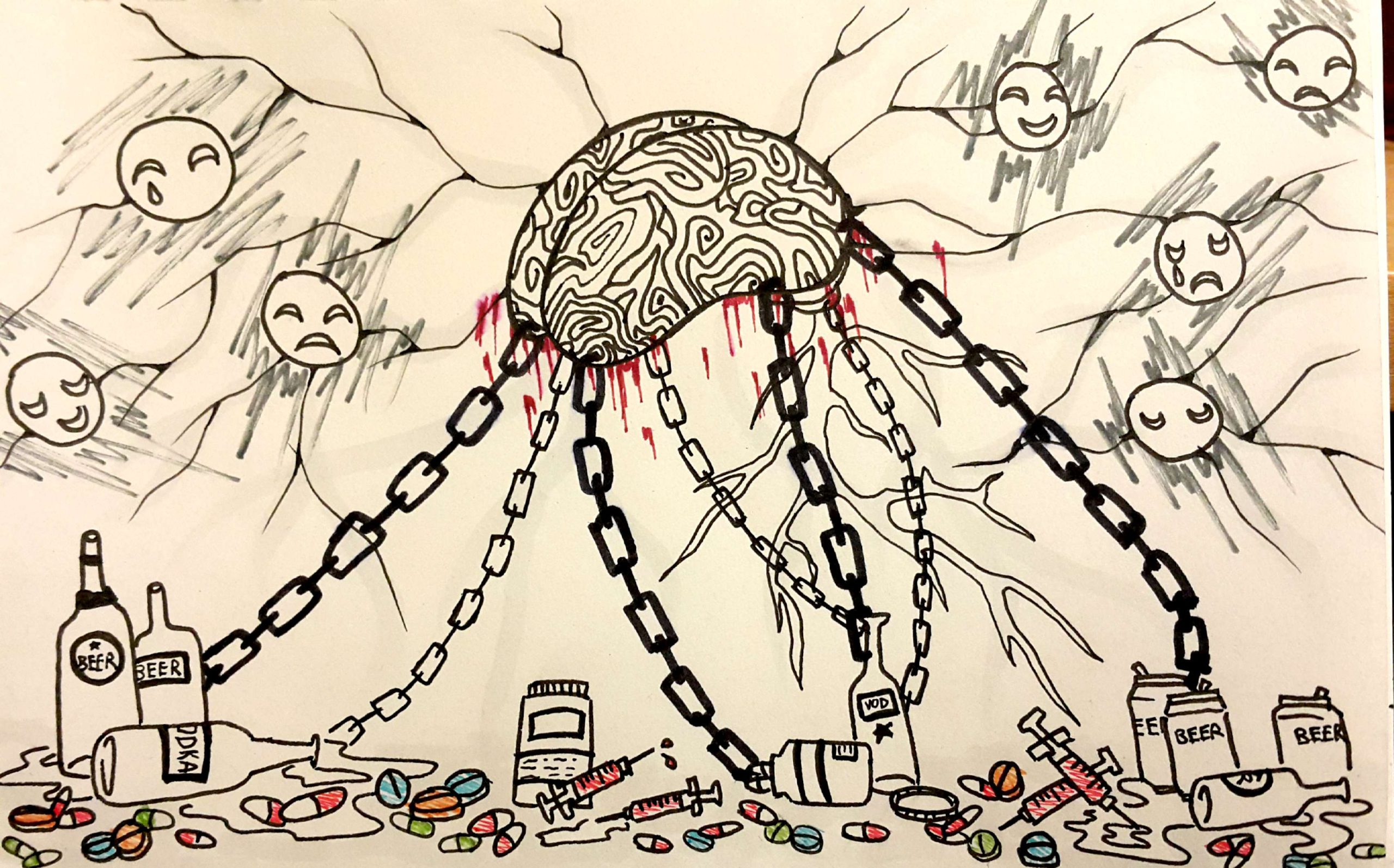Rabia Munir | Contributor
Featured image: Students can contact counselling services on campus at N110 Bennett Centre.
Addiction is described as a behaviour that an individual can no longer control, and is generally classified through the 4C’s: loss of control over the amount or frequency of use, compulsion to use, craving and use despite consequences. Addiction can apply to more than substances; in university settings it is not uncommon to have addictions ranging from alcohol and food to technology.
According to Canadian physician Dr. Gabor Maté, who specializes in this field, anyone can be prone to addiction. Maté explained that everyone in society is a “hungry ghost,” looking to fill the emptiness from the outside. Thus, an addict can fill the hole by maintaining their addiction.
“If you want to ask why people are in pain, you can’t look at their genetics. You have to look at their lives,” said Maté in a talk titled The Power of Addiction and the Addiction of Power.
Social isolation and loneliness are often described as factors that allow for addiction to grow within individuals, especially within a university setting. This is because networks that students had at home are no longer present and students are much more independent. A study conducted by The Times of India suggested that those who are socially isolated may be more prone to developing substance addiction.
The effects of substance addiction, in particular involving drugs and alcohol, are seen in the brain, immune system, liver and the behaviour of the individual.
“Addiction changes the brain in fundamental ways, disturbing a person’s normal hierarchy of needs and desires and substituting new priorities connected with procuring and using the drug. The resulting compulsive behaviors that override the ability to control impulses despite the consequences are similar to hallmarks of other mental illnesses,” reads The National Institute on Drug Abuse website.
Distinguishing whether addiction can be classified as a mental illness itself or if it can cause one is difficult terrain to navigate. But there is certainly a relationship. According to CAMH, individuals with mental illness are twice as likely to have an addiction problem compared to the general population. Statistically speaking, at least 20 per cent of individuals with a mental illness struggle with substance use.
At York, the Mental Health and Wellness committee works to promote mental health. Likewise, Personal Counselling Services are offered at N110 Bennett Center for students.
Counselling is available for individuals, couples and groups, and Personal Counselling Services provides consultation to students who are under “distress/crisis and issues related to mental health in general.”


